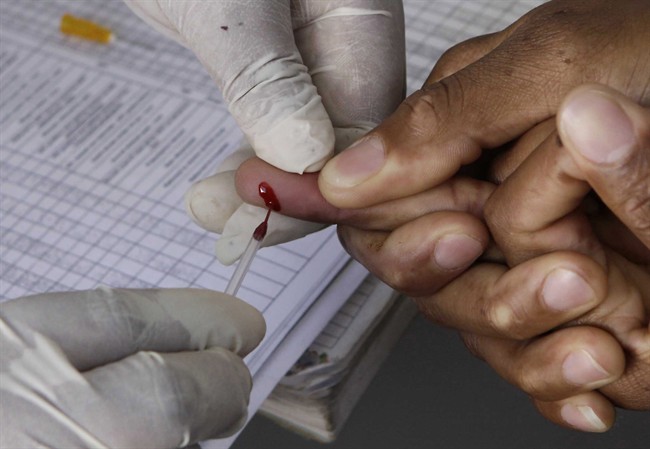New research suggests that a simple blood test to measure inflammation in the body could help to predict whether you’ll be alive within the next five years.

While the findings are preliminary and more research needs to be done, University College London doctors say their results open the door to turning to an inflammatory biomarker as a strong measure for health.
The researchers say their findings even add to personalized medicine, another frontier the medical community is chipping away at.
“Omics technologies are exciting, as they allow the concurrent assessment of many biomarkers, some of which may turn out to be important to detect preclinical states of diseases or be markers of future diseases,” Dr. Archana Singh-Manoux said in a statement.
READ MORE: Could this simple test predict your risk of dying in the next five years?
For the study, Singh-Manoux’s team looked at deaths from cancer, heart disease and all causes. They scoured health data from 1997 to 1999 on more than 6,545 people between 45 and 69 years old.
A handful of inflammation markers were considered, such as interleukin 6 (IL-6), C-reactive protein (CRP) and alpha 1-acid glycoprotein (AGP). In previous research, scientists found AGP to be a “strong predictor” of death within five years.
The scientists followed the health trajectories of these people to see who had died up until 2015. This time around, the researchers suggest that IL-6 was the strongest predictor of death.
READ MORE: Online tool calculates when you’ll die based on 4 unhealthy habits
“The novelty of our approach lies in being able to assess risk of mortality in the short- and long-term. Our findings show IL-6, which is already known to be important to heart disease, to do better than AGP,” Singh-Manoux said.
“Research on biomarkers is progressing fast, and it is important to undertake checks like in the one in our study, to shape future research on biomarkers,” she said.
READ MORE: Not too late for seniors to take up exercise for better health, longer life, study says
Inflammation occurs naturally in your body – it’s your body’s response to fight against toxins, infections and other injuries. But when it goes on for too long, it can trigger disease processes, according to the Cleveland Clinic.
It plays a role in almost every major disease, from cancer to Alzheimer’s disease.
Biomarkers have also been identified as links to certain diseases, such as cancer and cardiovascular disease.
This isn’t the first time researchers have tried to find a way to measure future risk of death. Last year, British and Swedish scientists developed a quick online test to determine risk of dying within the next five years.
The questions include:
- How old are you? (You have to be between 40 and 70 to take the test)
- Do you smoke?
- What is your usual walking pace?
- Are you dealing with diabetes, cancer or heart disease?
- Have you dealt with death of a close relative, divorce or financial difficulties in the past two years?
In total, there are 11 questions for women and 13 for men.
READ MORE: Is the treadmill test a good measure of your risk of death?
The test was pulled together with the help of data from the UK Biobank study, which tracked half a million British patients over the course of five years. Hundreds of health factors were considered in the study.
Singh-Manoux’s findings were published this week in the Canadian Medical Association Journal.
carmen.chai@globalnews.ca
Follow @Carmen_Chai


Comments